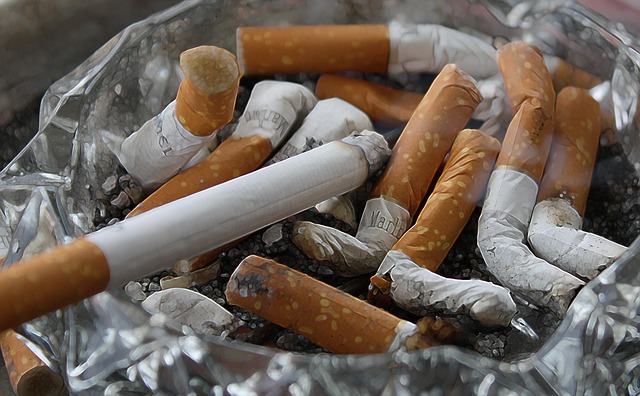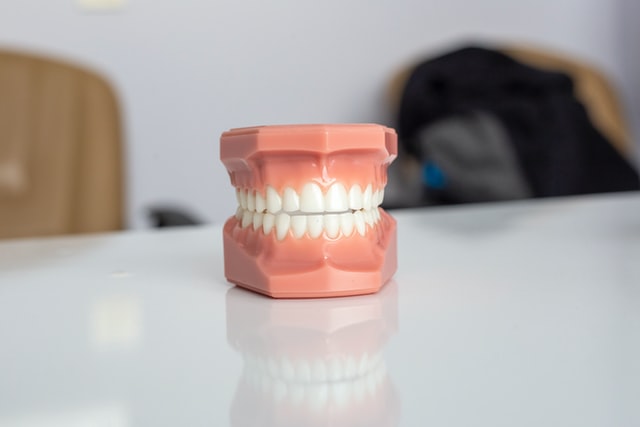Some health conditions are out of our complete control. We can’t prevent conditions like asthma or arthritis, but there are plenty of conditions we can minimize risk for through our behavior. Tooth decay is one of the most common health conditions worldwide, and in most cases, it can be completely avoided by taking proper care of our teeth and avoiding common risk factors.
Here are three of the most common behaviors impacting the health of our teeth and how we can do better to keep them healthy every day.
1. SNACKING HABITS
It’s not just what you eat, it’s how and when you eat it.
Everyone knows that a sugary diet causes cavities. But even regular snack foods can lead to faster decay if you frequently snack between meals.
Tooth decay is caused by acids released by bacteria in your mouth. Those bacteria love sugars and starches, but any time you snack and food residue sits in your mouth, you’re giving them more chances to multiply and leak more acids onto your teeth. By restricting your food to mealtimes, you’re giving those bacteria a shorter window to work with.
Biggest Tooth Decay Causing Snacks
- Anything sugary – Candy, soda pop
- Natural sugars too – Fruits and fruit juices
- Starchy foods – Chips and pretzels
- Sticky foods – Candy and sports drinks
Some of the Best Foods for your Teeth
- Foods rich in fiber are abrasive enough to help clean your teeth, like carrots and leafy greens
- Foods that encourage saliva production to help wash away food, like sugarless chewing gum
- Dairy and soy products have phosphates and calcium that can help to re-mineralize your teeth
- Black or green tea may have polyphenols that can inhibit the growth of bacteria that cause tooth decay
2. SMOKING AND DRINKING

Image by Gerd Altmann from Pixabay
There are healthy habits, and there are unhealthy habits. Smoking and drinking are definitely in the later group, even when it comes to your teeth. When you first start smoking, the effects on your teeth may seem subtle. You won’t see your enamel start to turn brownish right away, but after a few months of smoking, you may begin to notice little discolored spots.
This is where your enamel starts to lose its natural whiteness, and over time, these spots will join together and cause your teeth to turn a shade of brownish-yellow.
While this isn’t so bad when you’re a teenager or in college, it can quickly make you look older than your age once you hit your 30s or 40s. That’s because nicotine stains your teeth, drying your mouth and causing the gum tissue around your teeth to recede.
The Effects of Smoking On your Teeth Over Time
As this happens, the yellowish roots will become more pronounced.
If the problem becomes severe enough that the yellowed roots make up most of what shows when you smile, it will make you look older, or like you have dentures.
Tips for Quitting Smoking
The best way to slow this process is by quitting smoking. However, stopping smoking is never easy. Here are 3 tips.
- Tell everyone in your life that you’re quitting. The more people know about it and support you, the more likely you’ll be successful in your attempt.
- Take a picture of yourself smoking your last cigarette before throwing away all your cigarettes and lighters. You never want to forget what led you down this path or how far you’ve come. This method will help you focus more on the quitting process.
- Decide why you want to quit and write down those reasons and a timeline for when you want to have them fulfilled (for example, by the time my baby is born). Setting goals to have something concrete helps you focus on the quitting journey.
Fluoride Can Help
The best way to get back to your normal tooth color is through a fluoride mouthwash.
Fluoride mouthwashes prevent tooth decay and can help treat it. Fluoride mouthwash is handy for people who have dry mouths because it helps prevent plaque buildup on their teeth.
You can buy fluoride mouthwash over the counter or get a prescription for fluoride rinse from your dentist or doctor.
Fluoride mouthwashes are also helpful for strengthening the enamel on your teeth, which helps prevent cavities from forming.
They also work to remineralize the enamel on your teeth, although any holes and cavities in your teeth cannot be reversed naturally.
3. GRINDING YOUR TEETH AT NIGHT

Photo by Enis Yavuz on Unsplash
Grinding your teeth at night is a common, but not very pleasant habit.
It’s also something that can be difficult for someone to realize they’re doing, and that’s why it’s called “sleeping” bruxism.
If you’re grinding your teeth, you may notice that your jaw feels tight and sore in the morning, but often it goes undetected.
Over time, however, bruxism can do irreversible damage to your teeth by eroding the enamel that protects them from decay.
For some people with this particular problem, wearing an oral appliance during sleep can help ease the tension on their teeth when they grind them together.
Bruxism Can Be Concious or Unconscious
Sometimes you may find yourself unconsciously grinding your teeth throughout the day and night.
In that case, there may be an underlying cause for your stress-related behavior that needs immediate health attention.
This disorder should be a concern that prompts you to book an appointment with your dentist. Visiting your dentist is vital since your dentist can spot problems that you might overlook, and they can also recommend treatments and other preventative measures to help keep you from grinding your teeth.
Control Your Dental Health
Your actions make you the driver of your own dental health, whether or not you are deliberately steering the wheel. Apply these lessons to your life and talk to your dentist about what more you can do to keep your teeth healthy year after year.
ABOUT THE AUTHOR
Aaron Smith is an LA-based content strategist and consultant in support of STEM firms and medical practices.
He covers industry developments and helps companies connect with clients. In his free time, Aaron enjoys swimming, swing dancing, and sci-fi novels.












